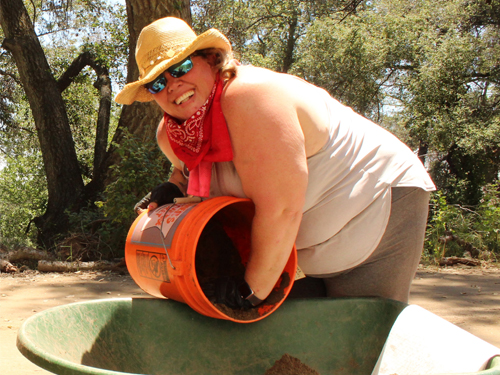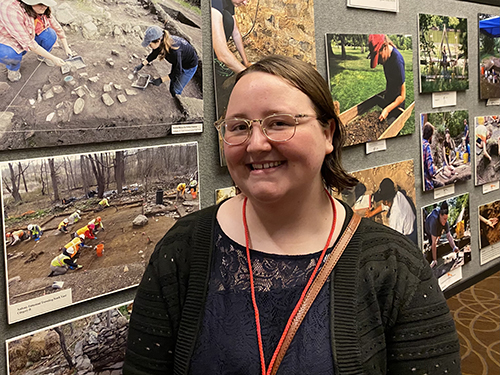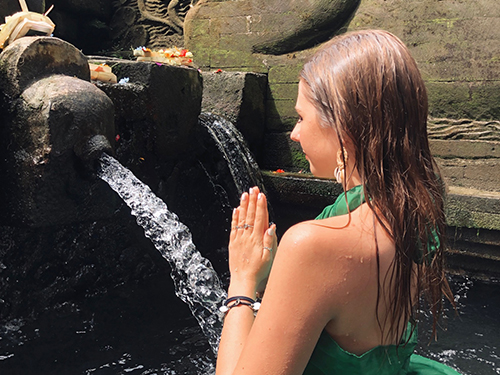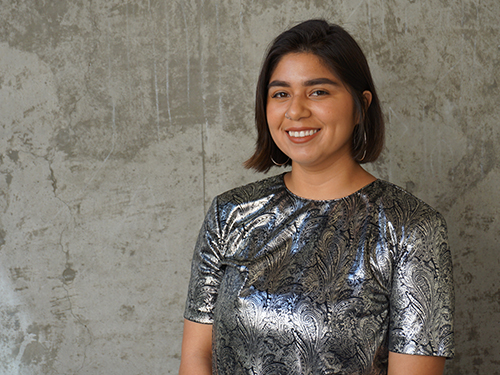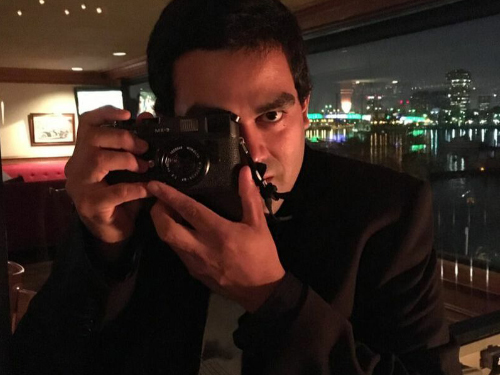
Student Stories
Hear what some of our current and former students have to say about our program.
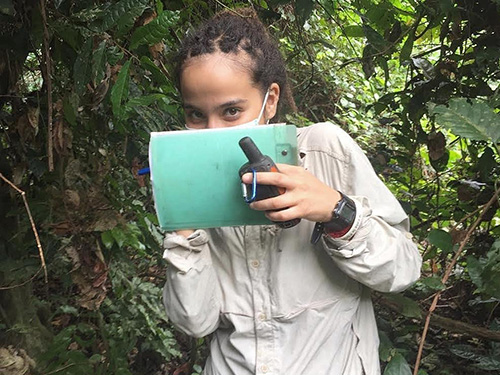 Dania Abizaid-Herrera
Dania Abizaid-Herrera
Looking into the eyes of a wild primate is something that sends chills down your spine, making you really question what makes us humans so different. Studying our closest living relatives is something that has fascinated me since childhood, and I have been privileged enough to be able to pursue it as a career via my studies here at SDSU. After graduating with my BSc in Biology, I had the chance to work as a research assistant with wild Bornean orangutans in Indonesia, and lowland gorillas in Gabon. These experiences not only introduced me to the world of primatology - they opened my eyes to understanding that primatology is much more than following monkeys and apes around the forest. Primatology provides a key to understanding ourselves. Studying nonhuman primates - from their highly complex social lives to their immense behavioral diversity - is enthralling, but what makes it particularly special from an anthropological perspective is how we can use this knowledge to help understand humans in both the past and the present. Through my anthropological training at SDSU, I aim to produce research that considers the human-nonhuman primate interface in support of the development of conservation strategies that ensure that the needs of both are met.
Jamie Bastide
As an undergraduate, I chose anthropology because of my interest in people and how they lived in the past; essentially, I really just wanted to dig up old stuff! As I have progressed through my academic career however, I have been able to understand so much more of the underlying causes behind the material culture that people leave behind. My passion has become understanding identities through historical documents and artifact assemblages to not only get to the center of what people use and why, but also the nuances of relationships and negotiations within society. I have been lucky enough to purse this interest through both public archaeology and within the greater archaeological community through conferences, presentations, and a museum exhibit. I plan on furthering my career through a doctoral program and look forward to sharing my love of archaeology and anthropology to future generations of students as a professor.
Megan Carey
Anthropology speaks to me because, at its core, it is about empathy and human connection. Take archaeology, for instance. I am often astounded by the age, magnitude, or importance of an archaeological site or artifact, but it is the fingerprint in the clay, the snarky comment on a page’s margin, or the notches on a door-frame that make me stop and think. These are not grand monuments or feats of human achievement; they are just human. These tiny details of life tie people together as individuals through time and space. Anthropology aids us in connecting with people from the past to the present, from the other side of the world to right next to you. This connection is imperative. We, and the world, are all the better when we can empathize with people who are unlike ourselves.
Shannon Farnsworth
As an undergraduate at SDSU, I discovered my passion for historical archaeology. It allows me to feel a connection to individuals from the past – specifically those that are not typically recognized in other disciplines – through their material goods and primary source documents. It also benefits from using the four fields of anthropology, allowing for a well-rounded analysis. My work at the Nathan “Nate” Harrison Historical Archaeology Project, beginning in 2017, changed the course of my academic career and set-in motion my path to becoming a graduate student in anthropology. Not only did it allow me to dig at a site – a dream of mine since playing Tomb Raider as a kid – it led to my participation in various conferences, co-authoring a journal article, and helping plan and execute an exhibit at the San Diego History Center. In addition, throughout my years in the department, I have built my own community of friends and colleagues through classes, clubs, and work in multiple anthropology labs. I look forward to eventually using my background as an anthropologist as I begin my career and further education in the film industry.
Milan Joinson-Szekerka
I love to travel and to learn from the people in other cultures. A deep appreciation
for other perspectives was instilled in me from an early age because I went to a Waldorf
school from age 5 through to high school graduation. Even so, it wasn’t until I took
an anthropology class on magic, witchcraft, and religion that I saw anthropology as
a pathway that would feed my curiosity about and deepen my understanding of humankind.
The breadth of the anthropology curriculum at SDSU allows for a variety of career
paths: I intend to pursue a business of my own but believe that the warmth, empathy,
and true interest in humanity cultivated in SDSU’s anthropology program will serve
me well in any career I may later choose.
Desseray Reyes
I first learned about anthropology in a presentation Dr. Perez gave about migration.
Being a transborder student, this sparked my interest and I have been hooked ever
since! Completing cultural anthropology coursework and participating in an ethnographic
field school in Oaxaca, Mexico, I learned the importance of community-centered research
and I came to grasp just how vast migration and the aftermath it leaves behind is.
What I love most about anthropology is the way it highlights how important human connections
are. The connections that you make with the individuals that you work with give you
a better understanding of culture, and help emphasize how culture has shaped us all.
Robert Sanchez
Anthropology is a great major because of the tools it provides us as we approach sensitive issues, including gender, race, and many more hot topics—not just out in ‘the field,’ but also in our everyday life. Anthropology found me through my work photographing the local jazz music scene. The stories I heard opened my eyes to to the value of an ethnographic approach to this cultural arena. My understanding of culture, and the different forces that help form it, has really grown here at SDSU, in large part through the variety of classes offered, conversations with professors, and in-class debates seen through the lens of anthropology. Graduate school is my next goal in anthropology; to further expand my understanding of the culture here in the US and around the world.
